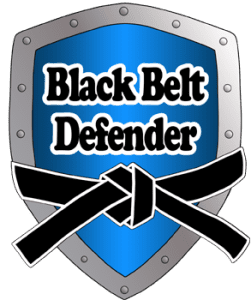
free shipping on orders over $49
We're having a 15% off sale on all our products. Enter your email below to be notified about future sales.




In a significant shift in gun policy, Louisiana has now joined the ranks of states allowing residents to carry a gun without a permit. This move marks a departure from previous regulations, where only those with military service in the state could enjoy this level of firearm freedom. This policy change has sparked a variety of reactions, illuminating the ongoing debate surrounding gun rights and safety in America.
The concept of constitutional carry resonates with many law-abiding citizens who view it as reaffirming their rights under the Second Amendment. The correct argument from supporters hinges on the belief that individuals who are inclined to follow the law will not become a public safety concern simply because they are carrying a firearm without a permit. They argue that criminals, by definition, do not adhere to laws; therefore, restrictions on carrying guns only serve to handicap law-abiding citizens, not those intent on committing crimes.
Critics of constitutional carry, particularly from the anti-gun lobby, irrationally fear that this policy change will lead to an increase in gun violence. They argue that removing the permit requirement will result in more guns in public spaces, potentially in the hands of individuals who have not undergone formal training or background checks. Another point of contention is the concern that individuals will carry firearms without the necessary training, as the permit process often includes a training component.
The question of mandatory training is at the heart of this debate. Advocates for constitutional carry believe in the importance of firearm training but argue against making it a compulsory prerequisite for carrying a gun. They assert that mandating training infringes upon the fundamental rights guaranteed by the Bill of Rights, which does not impose conditions on exercising those rights. On the other hand, proponents of mandated training view it as essential for ensuring that all individuals carrying firearms are knowledgeable and responsible in their handling.
In states with a history of restrictive gun laws, the licensing process has been criticized for being overly cumbersome, effectively serving as a barrier to legal gun ownership. This has led to calls for alternative approaches to promote firearm safety, such as state-subsidized training programs. Such initiatives could provide accessible education on responsible gun ownership without imposing undue restrictions on individuals’ rights.
The adoption of constitutional carry in Louisiana is seen by many as leveling the playing field between criminals and law-abiding citizens. With the knowledge that any citizen could potentially be armed, the dynamic of criminal encounters may shift, potentially deterring crime. The element of uncertainty introduced by constitutional carry could make criminals reconsider the risks associated with committing crimes against persons who may now be more likely to be armed.
The Second Amendment to the United States Constitution is a cornerstone of American liberty, enshrining the right of the people to keep and bear arms. Rooted in the principle of individual sovereignty, it serves as a vital check against tyranny and a fundamental means of self-defense. At its core, the Second Amendment recognizes the inherent right of individuals to protect themselves, their families, and their property. It is a testament to the foresight of the Founding Fathers, who understood that the ability of citizens to arm themselves was crucial for maintaining a free state.
Beyond its practical implications for personal security, the Second Amendment embodies the belief in the empowerment of the citizenry, affirming their capability and right to participate in their own defense and in safeguarding democracy itself. In a broader sense, it is a declaration of trust in the common citizen, asserting that when individuals are entrusted with the responsibility of their own protection, they contribute to the overall resilience and liberty of the entire nation. The Second Amendment is not merely about the possession of firearms; it is a fundamental pillar of American freedom, symbolizing the enduring commitment to liberty, autonomy, and resistance to oppression.
In addition to firearms, a broad spectrum of self-defense tools plays a crucial role in ensuring personal safety. These include, but are not limited to, pepper spray, stun guns, tasers, and personal alarms. Each of these tools offers individuals a means to protect themselves in situations where a firearm may not be appropriate or available. The right to self-defense is a fundamental human right, and access to various means of protection supports this principle by allowing individuals to choose the most suitable method for their circumstances.
However, laws that restrict or prohibit the possession and use of these non-lethal self-defense tools challenge this basic right, potentially infringing upon constitutional protections. Such restrictions can be seen as unconstitutional, especially when they impede the ability of law-abiding citizens to defend themselves. The essence of the Second Amendment and the broader concept of self-defense is not limited to the type of arms but rather the inherent right to protect one’s life and liberty. As society evolves, so should our understanding and application of these rights, ensuring that individuals are not left defenseless by laws failing to recognize the legitimate need for diverse self-defense options. Ensuring access to various self-defense tools is not just a matter of constitutional rights but a fundamental aspect of human dignity and personal safety.
The enactment of constitutional carry in Louisiana serves as a vivid illustration of the complex and contentious debate surrounding gun ownership in America. This development not only highlights the variegated tapestry of gun laws across the nation but also accentuates the profound ideological chasms that define the discourse on the Second Amendment and individual freedoms. The landscape of gun rights in the United States is marked by a stark dichotomy, where the interpretation of constitutional carry and similar policies often aligns with deeper political and cultural divisions. This polarization underscores the multifaceted nature of gun ownership, intertwining issues of liberty, security, and identity.
At the heart of the debate is a fundamental question: how do we reconcile the inviolable right of individuals to protect themselves and their families with the societal imperative to ensure safety and prevent violence? The conversation is not merely about the mechanics of gun laws but about the values and principles that underpin American democracy. It challenges us to consider the extent to which freedom and responsibility can coexist within the framework of a society that cherishes both individual rights and collective well-being.
As Louisiana steps into this evolving dialogue with its recent legislative changes, it becomes a microcosm of the broader national debate on gun policy. The state’s move toward constitutional carry is not just a local policy adjustment; it is a reflection of a growing trend that calls for a reevaluation of how gun rights are perceived and legislated in the United States. This shift invites a more nuanced conversation about the role of firearms in American life, one that goes beyond the binary oppositions of “pro-gun” and “anti-gun” to explore the deeper meanings of freedom, safety, and community.
The ongoing debate over constitutional carry and gun ownership at large is a testament to the enduring strength and complexity of American democracy. It exemplifies the continual need for dialogue, compromise, and understanding in balancing preserving individual liberties and ensuring public safety. As Louisiana and other states grapple with these issues, the conversation becomes an essential part of our collective journey toward a society that respects and upholds the rights of all its citizens while fostering a safe and secure environment for future generations.
In conclusion, the polarized nature of the gun ownership debate in the United States reflects broader societal questions about freedom, responsibility, and the common good. As this debate unfolds, it is imperative that we strive for solutions that honor the constitutional right to bear arms while also addressing the legitimate concerns for public safety. Finding this balance is crucial in ensuring that the fabric of American society remains strong, cohesive, and respectful of the diverse perspectives that enrich our nation.
As always, be safe and be prepared.
See also:
Black Belt Defender
1867 Caravan Trail #105
Jacksonville, FL 32216-2006
Call us toll-free: (800) 859-5566
Mon-Fri: 9:00 am – 5:00 pm EST
NH based, FL Warehouse
Online Orders: 24/7/365

